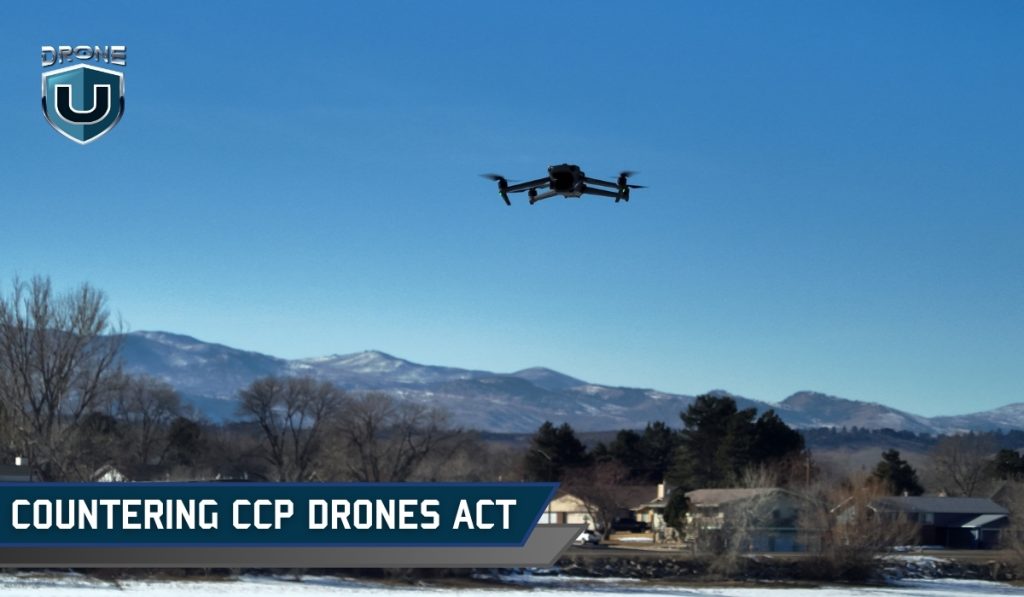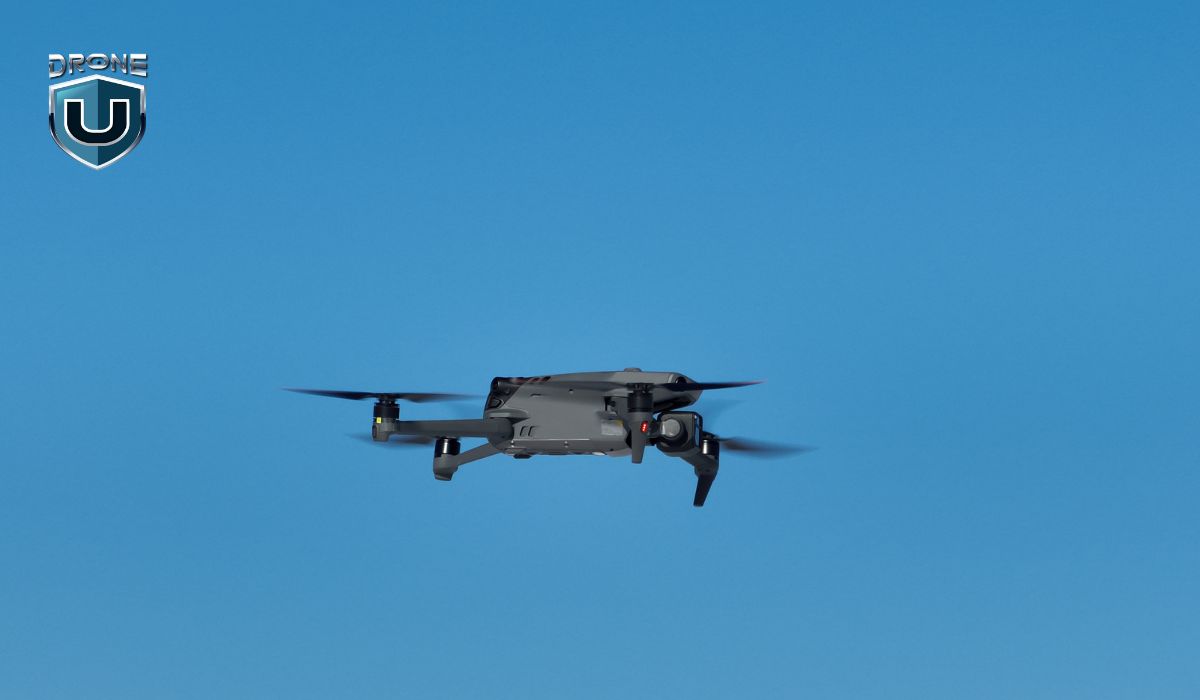
In light of the proposed H.R.2864 bill, which could potentially ban DJI drones in the United States, a significant shift in drone regulations may be on the horizon. Although not yet passed into law, this Countering CCP Drones Act represents a pivotal moment in the evolving landscape of drone technology. It will impact how drones are integrated into our daily lives.
As we stand at the crossroads, we’d like to keep you informed and prepared for what lies ahead.
Let’s delve into the details and explore the future implications of the Countering CCP Drones Act.
Introduction to the Countering CCP Drones Act

Recently, the U.S. Congress voted on the Countering CCP Drones Act, a legislative move addressing national security concerns related to Chinese-made drones.
To reduce dependency on foreign technology and protect sensitive information, the act has further broadened the US-China technology conflict and brought it to light.
The act represents a federal initiative aimed at reducing the dominance of Chinese companies within the U.S. drone industry. Lawmakers have long expressed concerns that these drones, particularly DJI products, could be used by the Chinese Communist Party for surveillance purposes.
While the government has yet to provide definitive evidence supporting these claims, Chinese manufacturers have consistently denied the allegations.
This legislation seeks to curb the influence of Chinese companies, including DJI and Autel Robotics, by adding them to the Federal Communications Commission’s (FCC) Covered List. This designation identifies telecommunication equipment that may pose a risk to U.S. national security.
Notably, this action will not affect Chinese drones currently in use by hobbyists or private companies.
Historical Background and Development of the CCP Drones Act
The events unfolded on August 9, 2017, when a document from the Los Angeles office of the Immigration and Customs Enforcement Bureau was made public.
This document marked the end of extensive intelligence collection efforts involving specialists and external organizations.
The article was headlined, “Is DJI Possibly Sharing US Critical Infrastructure and Law Enforcement Information with the Chinese Government?” It explained that drones made by DJI in the United States, owned by unknown businesses and individuals, were sending data to DJI servers in China.
Soon, the U.S. Government and other agencies in the country began having apprehensions about the Chinese-manufactured drones as they could be altered for purposes of espionage. These concerns deepened further due to the strained relations between both countries regarding trade and technology.
In 2021, the Department of Treasury voiced concerns about the use of DJI drones in the surveillance of China’s Uyghur Muslim minority. The following year, the Department of Defense blacklisted the Chinese firm, making it hard for DJI to do business with the U.S. government.
In the same year, legislation seeking CCP drone regulations was introduced by Scott and Senators Tom Cotton (R-Ark.) and Marco Rubio (R-Fla.) in the Senate and by Representative Elise Stefanik (R-N.Y.) in the House, but it failed to move forward.
In 2023, Stefanik reintroduced the bill again in the House, paving the way for its inclusion in the House NDAA released in June. The same month, the legislation was also introduced in the Senate but it could not garner enough support to be included in the chamber’s version of the bill.
National Security Implications of the Act

The main focus of the Countering CCP Drones Act is to enhance the national security of the U.S. by safeguarding it against the usage of Chinese drones in the country. This act would help to reduce the risk and security threats posed by drones due to possible espionage, unauthorized data collection, and other possible threats.
Under this act, a review of the existing technologies is also made mandatory whilst the Department of Homeland Security is required to create strategies to manage and navigate the risks which are associated with such drones from foreign lands. Since this act restricts access to foreign drones, it would eventually help the U.S. government to mitigate and close possible vulnerabilities that may be caused to infrastructure and data systems.
Needless to say, a complete ban on the use of such drones would have far-reaching economic and technological implications. DJI is one of the top drone manufacturers extensively used in our country by commercial and hobbyist pilots. As per FAA records from August 2024, the total number of registered drones in the United States reached a substantial 785,827.
Currently, DJI drones are renowned for their unparalleled features and budget-friendly prices which make them a popular choice for leisurely flights and professional purposes. Hence, creating a ban on DJI would mean a disruption in the American drone market. There is a possibility of drone shortages resulting in spiked costs of drones for consumers and business owners.
On the other hand, the ban on Chinese drones could also encourage the growth of homegrown and alternative drone technologies in the United States. This could gradually lead to innovation and higher costs of drones in the long term.
US-China Technology Conflict: What to Expect Next
A potential Chinese drone ban means that the future looks bleak for the drone Industry. Even though the small players will gradually fill in the gap left by Chinese drone makers, the ban would lead to massive disruption.
However, it is pertinent to mention here that the government may allow a transition period of three years or more before the ban comes fully into effect. This transition would be time-consuming and expensive.
On the other hand, a ban could also lead to the rise of a more competitive drone market, leading to the development of new technologies and features. To mitigate the impact of the Chinese drone ban, the government could increase investment in domestic drone manufacturing, enhancing national security and reducing its reliance on foreign technology.
Before you go, I would love to hear your thoughts on the impending DJI ban. How do you see it impact your drone business and operations? Please share your thoughts in the comment box below.







Add Your Comment